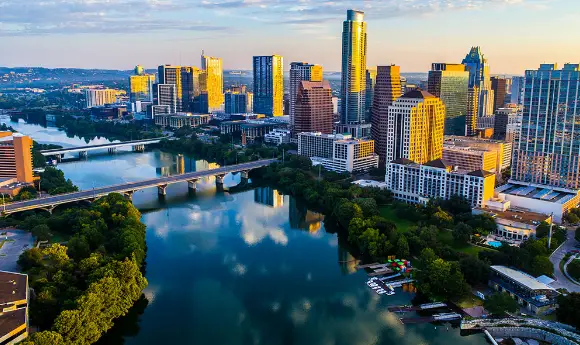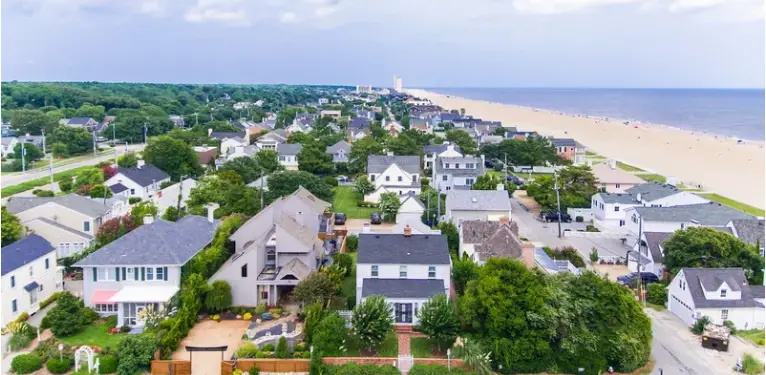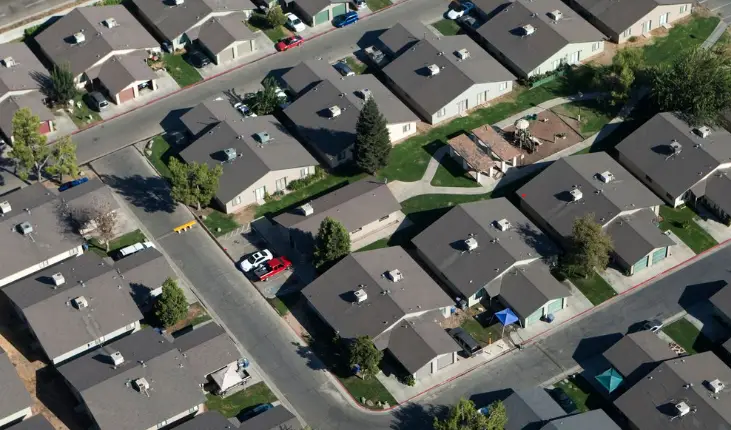Pros and cons of living in phoenix
There are many pros and cons to living in Phoenix. Some of the pros include the great weather, the many outdoor activities, and the low cost of living. Some of the cons include the high crime rate, the lack of public transportation, and the heat. The weather in Phoenix is one of the biggest pros.
The city has an average of 300 sunny days per year. This makes it a great place to live for people who love the outdoors. There are many outdoor activities to do in Phoenix, such as hiking, biking, and golfing. The city also has a low cost of living. The median home price in Phoenix is $215,000, which is much lower than the national median home price of $309,000. The high crime rate is one of the biggest cons of living in Phoenix. T
he city has a violent crime rate of 6.3 per 1,000 residents. This is higher than the national average of 4.0 per 1,000 residents. The lack of public transportation is another con. Phoenix does not have a public transportation system. This can make it difficult to get around the city if you do not have a car. The heat is also a con. The average high temperature in Phoenix is 105 degrees Fahrenheit. This can make it difficult to be outside for long periods of time during the summer.
https://www.youtube.com/watch?v=EBiIQPI-UZE
Is moving to Phoenix a good idea?
There is no one-size-fits-all answer to this question, as the best place to live depends on each person’s individual circumstances and preferences. However, Phoenix is generally a good place to live, as it has a warm climate, plenty of sunshine, and a variety of activities and attractions. The cost of living in Phoenix is also relatively affordable, and the city has a strong job market.
https://www.youtube.com/watch?v=e3Fw-bXea_0
Is Phoenix a nice place to live?
Phoenix is a great place to live for a number of reasons. First, the weather is amazing. It’s sunny almost every day, and even when it does rain, the storms are usually short-lived and not too severe. Second, there are a ton of things to do in Phoenix. There are great restaurants, shopping, museums, and outdoor activities. Third, the cost of living in Phoenix is relatively low. Rent and groceries are both reasonably priced, and there are a number of affordable housing options. Finally, the people in Phoenix are friendly and welcoming. Overall, Phoenix is a great place to live.
What are the downsides of living in Arizona?
There are a few downsides to living in Arizona. The first is the heat. Arizona is known for its hot, dry summers. The average high temperature in July is 104 degrees Fahrenheit. This can be tough to deal with if you’re not used to it. Air conditioning is a must, and you’ll likely find yourself spending more time indoors during the summer months.
The second downside to living in Arizona is the lack of water. The state is very dry, and water shortages are not uncommon. This can make it difficult to keep your lawn and garden healthy. You may also have to limit your water usage inside your home. Overall, Arizona is a great place to live. But, it’s important to be prepared for the heat and the lack of water.
How much money do you need to live comfortably in Phoenix?
Assuming you would like a detailed answer for how much money you would need to live comfortably in Phoenix, Arizona, the following paragraphs provide some insight. The cost of living in Phoenix is relatively affordable compared to other major metropolitan areas in the United States. According to the Council for Community and Economic Research, the cost of living in Phoenix is about 10% below the national average.
Housing is one of the biggest expenses for any individual or family, and Phoenix is no exception. The median home price in Phoenix is $247,000, which is slightly below the national median home price of $253,000. However, keep in mind that the median home price can vary greatly depending on the specific neighborhood or area of the city you choose to live in. If you are renting, the median rent price in Phoenix is $1,025, which is also slightly below the national median rent price of $1,045.
Again, keep in mind that rent prices can vary greatly depending on the specific neighborhood or area of the city you choose to live in. Utilities, such as electricity, gas, water, and trash, can also add up. According to the U.S. Department of Energy, the average monthly utility bill in Phoenix is $165. This is slightly higher than the national average monthly utility bill of $159. When budgeting for your cost of living in Phoenix, don’t forget to factor in other expenses, such as food, transportation, healthcare, and entertainment.
According to the U.S. Bureau of Labor Statistics, the average monthly expenditure on food for a single person in Phoenix is $330. The average monthly expenditure on transportation is $139, and the average monthly expenditure on healthcare is $104. All in all, you would need to have a monthly income of at least $2,000 to live comfortably in Phoenix. This is just a general estimate, and your actual monthly expenses may be more or less depending on your specific lifestyle and needs.
Will Phoenix run out of water?
There is no easy answer to this question. The Phoenix area has been in a prolonged drought, and the state of Arizona has been working to proactively address the issue of water sustainability. However, it is difficult to say definitively whether or not Phoenix will run out of water. The Colorado River, which supplies much of the water for the Phoenix area, has been experiencing a prolonged drought. Lake Mead, which is one of the largest reservoirs in the United States, is currently at its lowest level since it was first filled in the 1930s. The drought has also caused groundwater levels to decline.
The state of Arizona has been working to address the issue of water sustainability. In 2004, the state enacted the Arizona Groundwater Management Act, which established rules for managing groundwater. The state has also created a water banking program, which allows water users to store water in underground aquifers for use during times of drought.
Despite these efforts, it is difficult to say definitively whether or not Phoenix will run out of water. The city has been working to reduce its water usage, and it has implemented a number of conservation measures. However, the prolonged drought has put a strain on water resources, and it is possible that Phoenix could eventually run out of water.
Why are people leaving Arizona?
There are many reasons why people are leaving Arizona. One reason is the cost of living. The cost of living in Arizona is rising faster than wages, making it difficult for people to make ends meet. Another reason is the state’s education system. Arizona ranks near the bottom of the nation in education, and many parents are choosing to move to states with better schools. Finally, the state’s economy is not as strong as it once was, and many people are leaving in search of better job opportunities.
What you should know before moving to Phoenix?
There are a few things you should know before moving to Phoenix. The first is that the summers are hot. The average high temperature in July is 104 degrees, so you’ll need to make sure you have air conditioning in your home. The second thing to know is that the city is spread out. Phoenix is the fifth most populous city in the US, but it covers a lot of ground.
That means that you’ll need a car to get around. The third thing to know is that the cost of living is relatively low. The median home price in Phoenix is $247,000, which is much lower than other major US cities. Finally, you should know that Phoenix is a great place to live. The city has a lot to offer in terms of culture, recreation, and entertainment.
What should I know before moving to Arizona?
There are a few things to keep in mind before moving to Arizona. The first is that the state is very hot. The average high temperature in July is 104 degrees Fahrenheit. It’s important to stay hydrated and to avoid being outside during the hottest hours of the day. The second thing to know is that Arizona is a desert state. This means that there is very little rainfall. The state receives an average of only about seven inches of rain per year.
This can be a shock for those coming from states with more rainfall. It’s important to be prepared for the dry conditions by stocking up on water. The third thing to know is that Arizona is home to a lot of wildlife. This includes snakes, scorpions, and spiders. It’s important to be aware of these dangers and to take precautions to avoid them.
Is Phoenix too hot?
There’s no denying that Phoenix is hot. The average high temperature in July is 106 degrees, and the average low is 86 degrees. But is it too hot? That’s a matter of opinion. Some people love the heat and find it invigorating. Others find it oppressive and prefer to stay indoors in air-conditioning. There are some drawbacks to the heat, of course. It can be dangerous for young children, the elderly, and people with health conditions.
Heat exhaustion and heat stroke are serious risks. And extended exposure to hot weather can take a toll on your body and your mood. But there are also some upsides to the heat. It’s great for swimming, and it’s a dry heat, so it’s not as muggy as it is in other parts of the country. And there are plenty of ways to stay cool, from air-conditioned malls to splash pads and public pools. So is Phoenix too hot? It depends on who you ask.
Why you should not move to Arizona?
There are a few reasons why you might not want to move to Arizona. For one, the state is incredibly hot for a large part of the year. If you don’t like heat, then Arizona is probably not the place for you. Additionally, the state is home to a lot of desert, which means there are not a lot of trees or green space. If you like being in nature, Arizona might not be the best fit. Finally, the state has a high crime rate in some areas. If you are looking for a safe place to live, you might want to consider another state.
Is moving to Arizona worth it?
There is no one-size-fits-all answer to this question, as it depends on each person’s individual circumstances. However, there are some factors to consider that may make Arizona an attractive option for some people. The state has a diverse landscape, with everything from desert to mountains to forests. This can be a great change of pace for those who are looking for a different type of environment. Arizona also has a growing economy, which can provide opportunities for those who are looking for work.
The state is also home to a number of large companies, which can offer stability and good benefits. On the other hand, Arizona can be a very hot state, and the summers can be unbearable for some people. The cost of living can also be high in some areas, such as the Phoenix metropolitan area. Overall, whether or not moving to Arizona is worth it depends on the individual. However, it is a state with a lot to offer, and it may be worth considering for those who are looking for a change of scenery or a new opportunity.
Is it better to live in Florida or Arizona?
There are pros and cons to living in both Florida and Arizona. Some people prefer Florida because of the warm weather and the beach. Florida is also a popular destination for retirees. However, Florida can be expensive, and there are hurricanes. Arizona has a more moderate climate. It is also cheaper to live there, and there are fewer natural disasters. However, some people find the desert landscape to be unappealing. It really depends on what you are looking for in a state to live in. Both states have their own unique benefits and drawbacks.
Also Read// Is Tampa safe to live?








